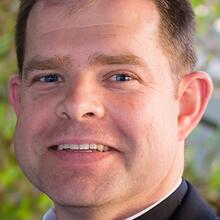Tucked away in the northeastern corner of South Africa is the Vicariate of Ingwavuma. The vicariate was previously a prefecture that had been entrusted to the U.S. eastern province of the Order of Servants of Mary in 1962. It was raised to the status of Vicariate Apostolic in 1990. The total population of the area is about half a million people—23,000 of whom are Catholic.
In 2013 the Argentinian-born bishop of the mostly rural vicariate, José Luis Ponce de Léon, a Consolata Missionary, was transferred from Ingwavuma to Manzini, Swaziland.
Swaziland is a small land-locked monarchy in Southern Africa. The whole country is one diocese. Ponce de Léon was asked at the time of his transfer to continue being the vicariate’s administrator.
The Episcopal Conference in Southern Africa comprises of bishops from three countries: South Africa, Botswana and Swaziland. (Just a few days ago a new bishop of the vicariate was named by Pope Francis, a member of the Missionaries of Mariannhill, Mandla Siegfried Jwara)
Bishop Ponce de Léon spent a week in the vicariate every month for the last three years. At the beginning of the year, he told its priests that he was willing to do confirmations during the week he was in the area. (He made sure that a weekend was always included in his monthly visits.)
A few weeks ago he related a story on his blog—the bishop writes a blog, he says, “as a hobby”—telling of his visit to the parish of Star of the Sea near the border of Mozambique, in a place called Kwangwanase. He went there to administer the Sacrament of Confirmation. He describes how he arrived, as is his practice, the day before the confirmations, to have a rehearsal with the group before the celebration.
On arrival he was welcomed warmly by the local pastor, Sifiso Mchunu, O.S.M., and told, “Bishop, we have a problem. There are over 100 people to be confirmed.” The bishop said that neither he—nor the recently appointed pastor—were expecting so many confirmands. The confirmands had all arrived, many from outstations, so that they could practice for the ceremony and so that the celebration could begin on time the next day. Many had travelled long distances to the parish.
Because the church was not big enough, a tent had been erected for the ceremony. The bishop explains that as it got later, and because there was no electricity, they placed three vehicles on the periphery with their headlights on so that they could rehearse the liturgy.
The bishop has always asked confirmands to make a clear commitment at the time of their confirmation. He asks them to meet with the priest and tell him what service they plan to do in their communities.
After the practice, the bishop returned to the parish house. The priest remained with the confirmands to talk to them about their commitments.
Early the next morning the bishop said the parish priest looked energetic and fresh but, he discovered, to his surprise, that he had only got to bed at 3 am! After he had met with the group, he had made himself available to celebrate the Sacrament of Reconciliation. One by one they went to confession, until all had received the sacrament.
The bishop writes: “He probably looked fresh not because he had slept enough but because he felt encouraged by the way they responded.”
In many rural places in southern Africa sacraments, like reconciliation, might only be available at outstations once or twice a year. Priests who serve these areas can at times have 20 or more Mass centers and can only get to the outstations a few times a year. The rest of the year the communities are sustained by catechists and other community leaders.
Bishop Ponce de Léon reports that the four-hour long confirmation celebration went well. He says that since he was appointed a bishop he has always insisted on laying hands on each candidate, no matter how many there are and inviting any clergy present to join him. “I make no exceptions. That must have taken a long time,” he jokingly says.
During the homily the bishop used the image of being “fishers of people.” He asked the youngsters how they planned to do that in their own lives as confirmed Catholics. Two, he writes, asked to talk.
The first young lady said that “she hopes that by the way she lives, people would ask themselves what leads her and she will then be able to witness to her faith.” The second brave speaker spoke about how important the “works of mercy” are. Both of them were met with spontaneous applause from the congregation.
Reflecting on the experience, the bishop says, “Maybe we did not have a problem, but an opportunity with the gift of those more than 100 people who want to witness with their lives [to] the presence of the risen Lord among us.”
Often we forget that the church is living and growing in remote places. We forget that many of our brothers and sisters have to make sacrifices and make long journeys, over difficult terrain, with no public transport, to receive the sacraments. We forget that many people do not have the sacraments easily accessible to them; they long for them and so, when the opportunity arises, they seize it—even if it means staying awake half the night.
Bishop Ponce de Léon’s story reminds us that there are many pastors who are committed to, as Pope Francis says, “smell like the sheep.”
From a little corner of Africa, we are reminded that the church is growing, alive and hope-filled.
Russell Pollitt, S.J., is director of the Jesuit Institute South Africa and one of America's Johannesburg correspondents.








